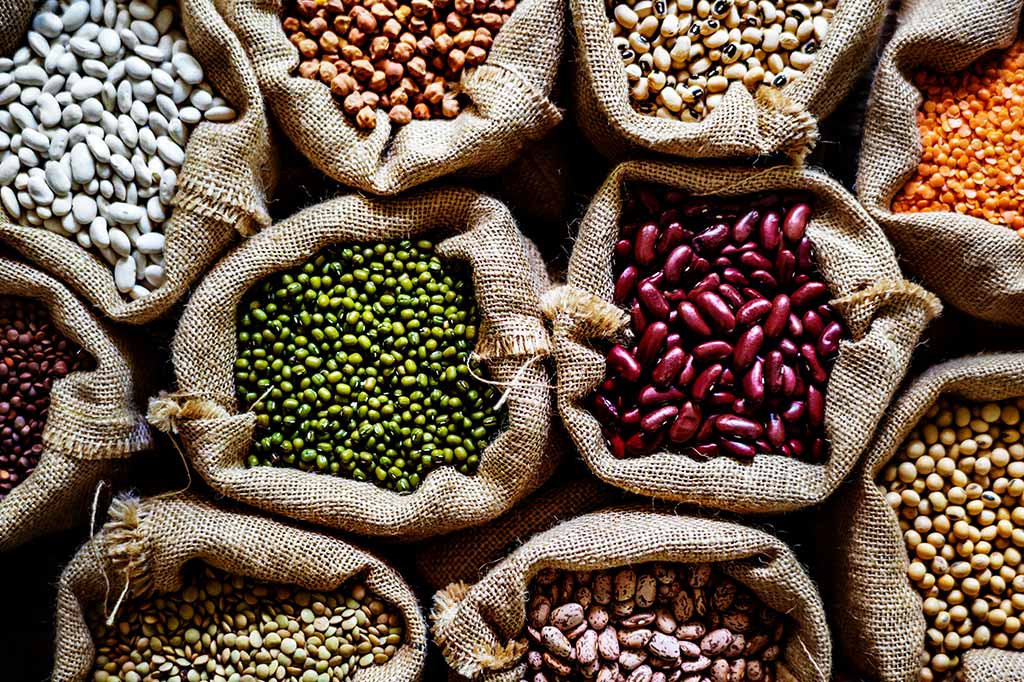
In Indian food, grains play a crucial role. They are the basis of our daily meals, from chapatis to biryanis. But now, people are paying more attention to staying healthy. So there’s a growing interest in the nutritional advantages of organic whole grains. Let’s take a closer look at why choosing these organic grains can lead to better overall health.
Understanding Whole Grains:
Organic whole grains are grains that contain all parts of the grain – the bran, germ, and endosperm. This means they retain valuable nutrients like fiber, vitamins, and minerals. These are often lost during the refining process of white grains. In the Indian diet, commonly consumed whole grains include rice, wheat, millets, barley, and oats.
Whole grains are like the complete package of grains, including all the good stuff like fiber, vitamins, and minerals. Organic whole grains keep everything that’s healthy in the grain. But refined grains, like white rice or refined flour, lose some of these good things during the processing. So, when you choose whole grains, you’re picking the grains that are better for your health. This is because organic whole grains have all the good nutrients in them.
The Nutritional Powerhouse of Fiber:
Organic grains are full of something called dietary fiber, which is super important for keeping our digestive system healthy. Fiber helps make sure everything moves smoothly, prevents constipation, and overall keeps our digestive system in good shape. In India, rice and wheat are big parts of our diets. So having different whole grains helps us get a mix of fiber, making sure our overall well-being stays good.
Balancing Blood Sugar Levels:
For people dealing with diabetes, it’s important to think about something called the glycemic index of food. Organic whole grains have a lower glycemic index than refined grains. This means they make blood sugar levels go up more slowly and steadily. This is really good for people with diabetes or those trying to avoid it. So, picking whole grains is a smart choice for our daily diets, especially for those looking out for their blood sugar levels.
Heart Health and Whole Grains:
Heart problems are a big worry in India. Organic grains are really helpful in keeping our hearts healthy. The fibre in them helps control cholesterol levels by lowering the amount of LDL cholesterol our bodies take in. Plus, whole grains have antioxidants and phytochemicals that are good for our heart health. So, choosing whole grains is a smart, heart-healthy move.
Nutrient-Rich Goodness:
Whole grains are packed with essential nutrients, including B vitamins, iron, magnesium, and zinc. These nutrients are vital for various bodily functions, such as energy production, blood formation, and immune system support. So get in a variety of organic whole grains into your meals. It’s the best way to have a nutrient-rich diet that fuels our bodies!
Organic Whole Grains: A Healthier Choice:
Organic whole grains bring more nutritional goodness to the table. When we pick organic, it means we’re choosing grains grown without chemical pesticides and fertilizers. In India, where farming is a big part of our economy, avoiding chemicals on crops is important for our health. By going for organic whole grains, we’re making a choice for food that’s not just more nutritious but also doesn’t have any harmful chemicals.
Local Varieties for Local Health:
India has lots of different grains, and each one has its own special nutrition. Millets, for instance, are becoming popular because they’re packed with good stuff and can grow well in different weather conditions. When we include local and native whole grains in our meals, we’re helping keep a variety of grains around. This is good for farming diversity and ties us to the nutrition knowledge found in our traditional foods.
The Culinary Versatility of Whole Grains:
One of the joys of incorporating whole grains into our diets is the culinary diversity they bring. From the soft texture of basmati rice to the nutty flavor of whole wheat, each grain adds its unique touch to our meals. Exploring different whole grains allows us to enjoy a range of tastes and textures while reaping the health benefits they offer.
Making the Switch to Whole Grains:
Transitioning to a diet rich in organic grains doesn’t have to be complicated. Simple swaps like choosing brown rice over white or opting for whole wheat flour instead of refined flour can make a significant impact. Gradually introducing diverse whole organic grains into our meals allows for an enjoyable and sustainable shift towards a healthier lifestyle.
In Conclusion:
In the pursuit of whole health, embracing organic whole grains emerges as a practical and flavorful choice for the Indian palate. From promoting digestive health to supporting heart well-being, the nutritional benefits of whole organic grains are vast. Incorporating a variety of indigenous and organic whole grains into our diets not only nourishes our bodies but also contributes to the sustainability of local agriculture. As we savour the wholesome goodness of organic whole grains, we embark on a journey towards a healthier, more vibrant life in the tapestry of Indian traditions and flavours.